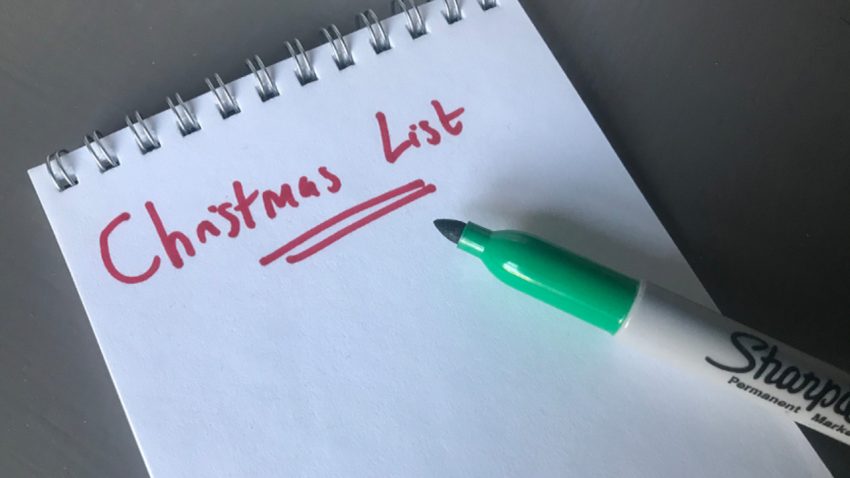When you go on holiday there’s bound to be something you forget – but I’d much rather leave behind my toothbrush than head overseas without checking off these money matters from my holiday checklist.
It’s all stuff that will probably affect you too, so here’s my finance related to-do list to help you think about what you still need to do.

Some articles on the site contain affiliate links, which provide a small commission to help fund our work. However, they won’t affect the price you pay or our editorial independence. Read more here.
Find my GHIC
Because of Brexit, the old European Health Insurance Cards (EHIC) are no longer valid. But in their place is the GHIC – Global Health Insurance Card. And despite the name, it’s essential for trips to Europe.
One of these cards will get you access to healthcare at the same prices as a local. That’s vital, not just in terms of saving money, but also to ensure your travel insurance will validate any claims.
If you already have one, check the expiry date. Each summer holidaymakers find out too late for their trip that they should have renewed their card.
If you need a new one, watch out for websites charging you to apply – they’re scamming you. Instead, apply or renew for free through gov.uk.
You’ll also need to check that your destination is covered. As mentioned, the name Global is deceptive. It’s still just Europe, and even then not every European country comes under the agreement, so it’s always worth checking.
Check my insurance
Sadly, a GHIC isn’t enough on its own. You still needed full travel insurance.
A mistake people often make is waiting until a few days before they travel to get insurance. Though you’d be covered if something went wrong when you were away, you’re at risk of missing out if your airline went bust, lost your job and couldn’t afford to go, or if you were too ill to travel. So get it as soon as you book!
I know it’s a pain, but do read the summary documents at least so you can see what is and what isn’t covered, and by how much. It’s often a case that cheapest isn’t best, especially if you can’t actually use it if something goes wrong.
If you’re going away multiple times this year it might be worth considering annual policies, but for a single weekend or fortnight then a shorter policy will suffice. Likewise, don’t buy a worldwide policy if you’re only going to Europe.
Also make sure you’re not covered elsewhere. Some credit cards and current accounts come with travel insurance (though again, check what the policy actually covers), while some home insurance policies will include partial cover that might mean you don’t need extras on things like possessions outside of the home.
Get the best of our money saving content every week, straight to your inbox
Plus, new Quidco customers get a high paying £18 welcome offer

Check passports and visas
It’s obviously vital to check your passport is still valid, but it’s often not as simple as having not expired. Some countries require you to have at least six months left on it when you travel, while in Europe it can’t be more than 10 years old – even if there are plenty of months left.
It’s well worth checking this regularly, or putting a reminder in your calendar, for a good few months ahead of it expiring or reaching those milestones as delays at the passport office could make it tight to get a new one issued before you travel.
And while you’re at it, make sure you don’t need a visa to enter your destination. There may be a small cost for this.
Buy an international driving permit
Another post-Brexit rule is the requirement in Europe to have a UK sticker on your car if you’re taking it across the channel – that’s the case even if you have a GB or EU flag on your number plate already.
If you’re hiring abroad you’ll need to get a DVLA code, while some countries might also need to buy an international driving permit. These have never been checked when we’ve had one, but it’s worth the £5.50 (plus a passport photo) cost to be safe. You can get one at the Post Office.
Oh, and buying a separate car hire excess insurance before you go will often be far cheaper than adding one on when you get to the car hire desk.
 Featured switching deal
Featured switching deal
 Customer rating
3.8/5
Customer rating
3.8/5
- Switch bonus£200
- Offer endsUnknown
- FSCS Protected? Yes
- Bonus requirements Switch using the Current Account Switch Service and close your old account within 60 days of starting the switch
- Deposit requirements Deposit £1,500 in the first 60 days from opening the account
- Direct debits transferred over Set up two Direct Debits before or after the switch from a selected list of household bills
- Existing customers? Can't have held any Santander current account on 1 January 2025
- Restrictions Can't have received a switching bonus from Santander already, offer limited to once per person
- Eligible accounts Open a new or hold an existing Everyday, Edge, Edge Up or Edge Explorer current account
Get a specialist payment card
There are now a number of fee-free cards for both spending and withdrawing cash overseas. I’ve written about them in detail here.
You don’t really need to let your card provider know you’re going away anymore, especially for those designed to be used abroad.
Order travel money
I rarely take much money with me. A lot has usually been prepaid already, and I’ll use my specialist travel credit card where I can, but I also want to have some cash on me.
Usually, I only take a little, just incase there’s an issue with cards at the airport when I arrive. But I’ll check destinations to see if there’s a chance of ATM issues. That’s more likely in far-flung destinations.
The best way to find the top exchange rates is to use Money Saving Expert’s TravelMoneyMax comparison tool. You’ll get the best options in London, though even preordering from the airport will be at a better rate than just rocking up.
Here’s more on getting the best from travel money, including why you should never, ever just exchange when you go to get your flight.
Sort out my phone
Before the days of free-roaming I used to switch off voicemail and turn off any data options before leaving the country – the costs of using both overseas were exorbitant. Sadly for many networks that’s the case once again.
Right now I’m on O2 with the added Volt package that comes from also being a Virgin Media broadband customer so I actually still get to use my allowance in Europe and a handful of other countries. You might not be so lucky.
Check what the deal is for your network and act accordingly. It can often work out better to pre-buy an add-on that gives a certain allowance or caps charges.
If you are trying to avoid massive bills, then my tips on cutting phones costs when you’re on holiday should help. Or you could try an eSIM, which gets you local data, calls and texts for an additional fee.






I used an eSim when I went to Canada last year, via an app called Airalo (i think there are others too). Worked out a lot cheaper than any UK data package add on.
Andy, the requirement to have a GB sticker on your car (or a GB-labelled number plate) was pre-Brexit, not post-Brexit. GB stickers/number plates – with or without the EU flag – are no longer legal in EU countries; drivers of UK-registered cars in the EU now need a UK sticker or UK-labelled number plate instead
https://www.bbc.co.uk/news/business-58734265